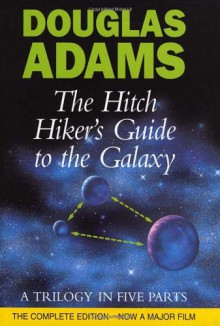
Book 3 in the lengthy series of Harry Bosch novels was published in 1994 (Book 24 came out in September 2019) and as with its predecessors it could stand alone. Indeed, I think this was the best so far, in my ongoing discovery of what makes the maverick LA detective tick.
The earlier novels (see my reviews of ‘The Black Echo’ and ‘The Black Ice’) allude to the ‘Dollmaker’ case, which lent some notoriety to Bosch, not least because he shot dead the supposed serial killer. But, now the late victim’s widow, represented by the reputed lawyer, Honey (‘Money’) Chandler, is challenging the legality of the lethal force used and even postulating that her innocent husband was simply the subject of an execution. By contrast, for his trial under civil rights law, Bosch is defended by an inexperienced lawyer from the DA’s office, clearly out of his depth and when a new body is found, with all the hallmarks of the original killer, Bosch is confronted with the prospect of his career and reputation being publicly shredded.
Away from the courtroom, the thread of Bosch’s burgeoning relationship with Sylvia Moore successfully tethers this novel to the previous book and reveals the tension in the detective’s attempts to satisfactorily balance a life so dominated by the demands of criminal justice. Still, it is the metaphorically ticking bomb of the court case that drives the pace of the book and the main character’s race to prove that his original action was justified.
Michael Connelly is a master of suspenseful drama, but as the plot hurtles along, he is also able to insert some memorable pauses, often describing the author’s beloved California, or a poignant moment for Bosch, a chance for the reader to reflect and ponder, before dashing on to a breathless conclusion. It can be exhausting, but also utterly compelling.
The reader knows that Bosch is emotionally damaged and torn between his ‘mission’ as a homicide cop and his desire for a life in which his priorities might be different. His lover, Sandra Moore, struggles with the same issue. “…He felt at home with her. That was the best thing. That feeling. He had never had it before…” Yet, while Bosch hankers for a quieter life, he also remains addicted to his adrenaline-gushing role as a dogged crime fighter. They both know he won’t give it up willingly.
Curiously, but unsurprisingly, Bosch also becomes a begrudging admirer of his legal adversary, perhaps seeing in the tough and ruthless prosecutor (‘Money’ Chandler), a reflection of his own personality. Their cerebral and verbal duel dominates the courtroom, while outside and during ‘intermissions’ a fast-moving investigation continues into the murder of the ‘concrete blonde’, racing against the pronouncement of a verdict, the contest refereed by a dour local judge.
Notwithstanding Bosch has given evidence in court many times, never in his own defence and surrendering himself to such scrutiny is an excruciating experience. But, the onslaught of intrigue and animosity, disloyalty and attempted scape-goating of Bosch, plants the reader very much on the detective’s side. The binary labels of ‘monster’ and ‘hero’ proffered to the jury, distilling the opposing perspectives in the battle of ‘rights’ and the actions/motives attributed to the police officer called upon to make a split-second decision, in contrast to the lengthy deliberations of the legal process. I found this an absorbing read and worthy of a place on my favourites shelf. Book 4 has a hard act to follow!

 Log in with Facebook
Log in with Facebook 









